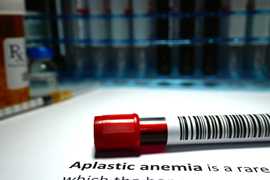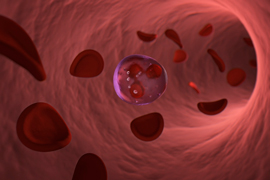Researching a More Effective Treatment to Prevent Relapse for Severe Aplastic Anemia (SAA)


Severe aplastic anemia is a rare and serious blood disorder. Patients with severe aplastic anemia commonly receive Cyclosporine to help improve blood counts. When cyclosporine treatment stops, the disease may return in one in three people.
Researchers at the National Institutes of Health Clinical Center in Bethesda, MD, are studying if sirolimus, an immunosuppressant, can help prevent a relapse in patients diagnosed with severe aplastic anemia following cyclosporine treatment.
What Is Involved?
- Randomly assigned to two groups:
- One group taking cyclosporine and receive sirolimus for three months;
- Second group will stop taking cyclosporine and not receive any medication but will be closely monitored
- A full medical history, physical examination, and bone marrow biopsy
- Participation in this study may last up to five years
- Received study related medication, tests, and procedures at no cost
To Be Eligible for This Study, You Must
- Be two years or older
- Have responded to immunosuppressive therapy that includes cyclosporine and continue on cyclosporine
The study takes place at the NIH Clinical Center. We are on the Metro red line (Medical Center stop).
For More Information, Contact
NIH Clinical Center Office of Patient Recruitment
800-411-1222 (refer to # 17-H-0019)
(TTY users dial 7-1-1)
Se habla español
Email: ccopr@nih.gov
Or go online
Department of Health and Human Services
National Institutes of Health Clinical Center
National Heart, Lung and Blood Institute

